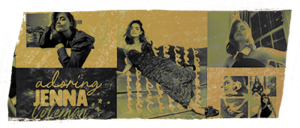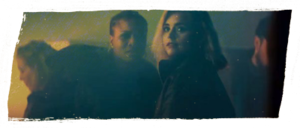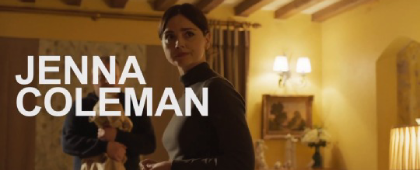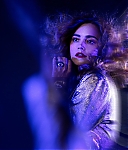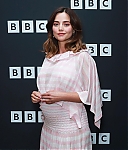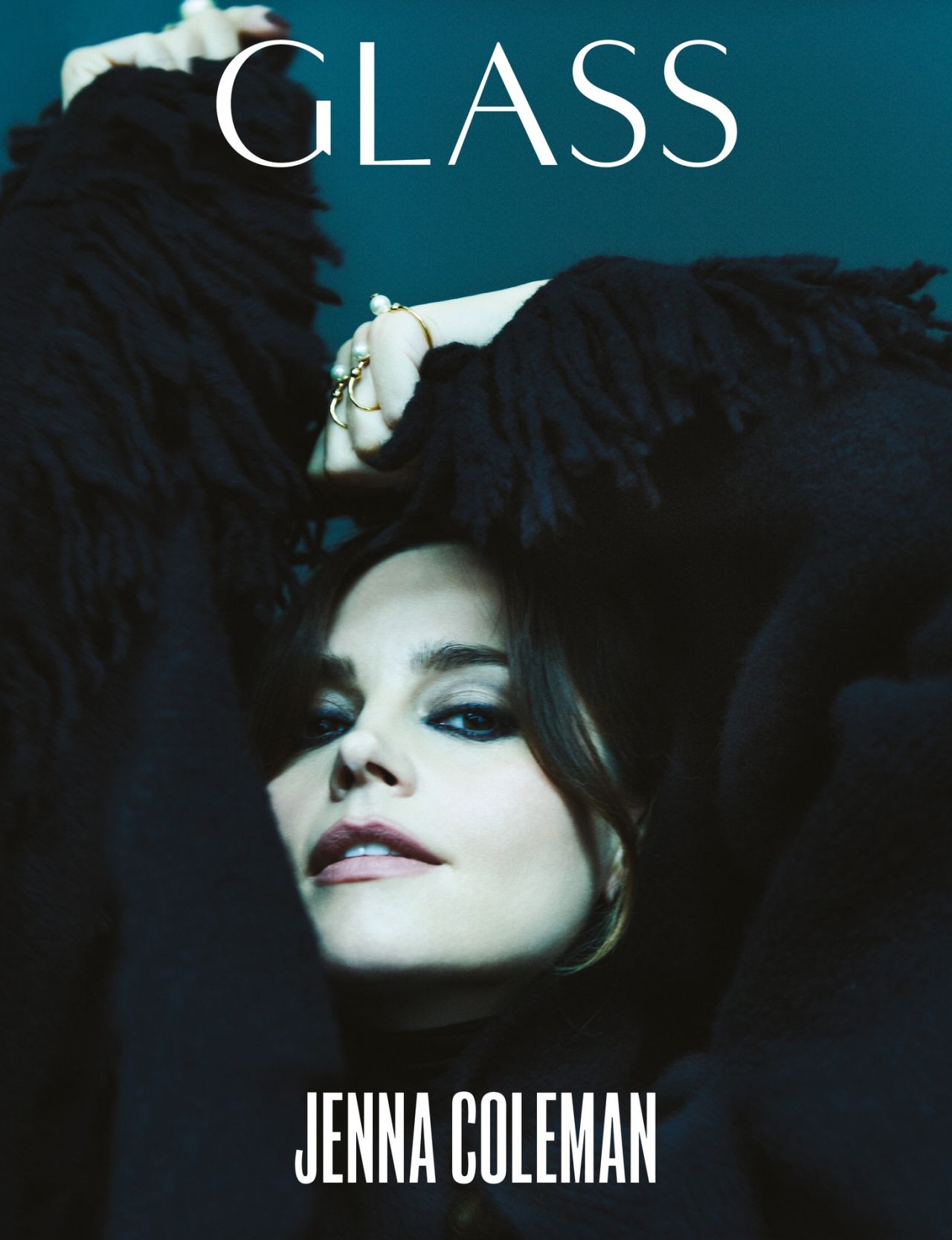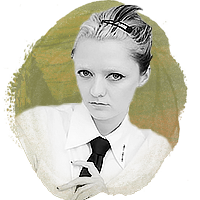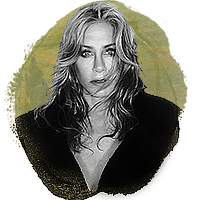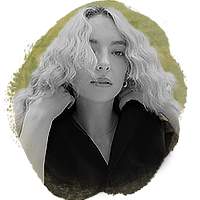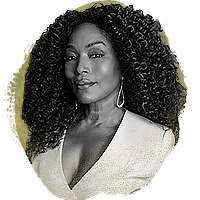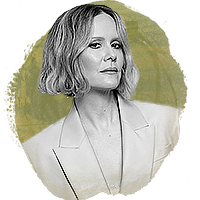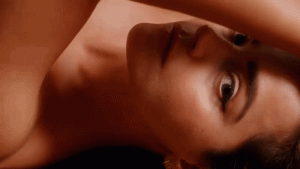

Plus, the story behind tonight’s terrifying labour scene.
The third season of Victoria opens with an uprising. We’re in Paris, in 1848, and King Louis Philippe is told it’s time to leave. He’s sneaking out of his palace through a dingy tunnel, when the scene cuts to Victoria, crown firmly placed upon her head, her hand resting on her very pregnant belly. The juxtaposition is hardly subtle, and it previews what’s to come over the next eight episodes: new babies and new challenges for the young British monarch, as the seed of revolution spreads across Europe.
“Thank God for the English Channel,” Victoria muses, hearing the news from France for the first time. Albert, ever the pragmatist, isn’t so optimistic. “I’m not sure it will be enough,” he says. “Ideas can swim.”
Ahead of tonight’s premiere, we spoke with actress Jenna Coleman what it was like to play Victoria pregnant, what she was really like as a mother, and how the collapse of monarchies across Europe completely shook her confidence.
Tell me about the time jump between seasons two and three. What has changed for Victoria at the start of this season?
When we first meet her, she is the mother of six children, so you kind of see a really definite time jump. The two oldest children have grown up; they’re fully speaking-characters in their own right.
And you also kind of get the sense that Victoria has settled into herself in terms of what her day job is. Her conversations with her Prime Ministers, it’s all much more second nature. We see her becoming increasingly more impatient and stubborn as she gets older and set in her ways, and it kind of feels like we’re coming back into the domesticity of Victoria and Albert’s marriage. They’re more settled, I suppose. But at the same time, while that’s happening, there’s also a revolution taking place across Europe.
I’ve heard that you read Queen Victoria’s letters and her diaries in preparation for shooting. Is there any bit of research that really helped you this season?
The most useful thing was that I read Queen Victoria’s diaries of when Louis Philippe came to stay with Victoria, and that was really interesting. I think Victoria felt so secure for her whole life: You are the Queen, you are safe, and loved by your people. And then, to see another monarch show up at your door in rags with nothing, having been overthrown by his country. It makes her realize that maybe her position isn’t so safe, and has her questioning her identity. The stories they told, how terrifying it must have been really brought all of that to life.
What I usually do is I keep reading her diaries and biographies up until a certain point, as far as we go each series. I think just listening to the way she talks about her children in particular is really interesting. The big misconception is that she didn’t care for her children. When she was older and later in life she basically told them, “You got in the way of my marriage.” But actually, she was quite a warm mother. She spends a lot of time with her children and is incredibly fascinated by them, and writes about them extensively.
But she did hate being pregnant, right?
Oh absolutely hated it. She called it “being caught.” Can you imagine though? She gave birth to nine children. Imagine your body. And every time she gave birth to a child, it took her out of being able to be Queen. Each time that happened, she was being more and more and more removed. And she’s an impatient person; she doesn’t like being told to lie down. She just wanted to do her job. She had this exhilaration and love for her independence, I suppose. And she hated breastfeeding; she thought it was for cows, not for humans. So a lot of the things that came with her being a mother, she found pretty vile, I think.
With that in mind, what is it like for you to play her when she’s pregnant?
I love it. I think I enjoy playing her most when she’s pregnant because one, I don’t have to wear a corset, but then two, I get to kind of waddle around, and I feel like she can just be fowl tempered and rude. I relish playing her when she’s like that because she doesn’t really care what anybody thinks, in a way. She does when it comes to the public and her people, but ultimately, you get free reign to play Victoria irritable and in a bad mood, and I really love playing her when she’s like that.
And, you have all these gentlemen around her in these suits and the Prime Minister and she’s there with this massive—I mean, I look like I’m having triplets. It’s a real joy to play her when she’s on a short fuse.
I want to talk about the labor scene at the end of the first episode. It’s terrifying. What was that like to shoot?
Honestly, I was like, “How on earth can I make it different from all the others?” [laughs] I feel like I’ve done so many. I did a different series recently, and I had another labor scene in that. I just thought “I’m running out of labor noises!” That’s the thing—it’s how do we make it different? So, I had the idea to be stood up, just to try and make it more fraught. Luckily, I have amazing makeup artists on set who literally are like “Remember, it’s in your back!” giving me all the advice. But it’s tough, and it’s tough when it’s repeated.
And at this point, there’s still no pain relief yet during Victorian times. Her kids were birthed with no pain relief, and the danger of dying during childbirth is really, really high. So, the fact that she survived nine births was pretty remarkable during that period in time. But I think it shows you everything about her temper. She was really stubborn, and she’s such a symbol of endurance.
You mentioned that at this point in the time, Victoria has a number of children, who all appear on the series. What is it like with all the kids on set?
Honestly, it’s absolutely crazy, and what’s hilarious is that Daisy [Goodwin, the show’s writer and executive producer] keeps adding in like mice and dogs and then we’ve got this menagerie of animals and kids and horses. Imagine toddlers, and you put them on set, and you kind of just have to get what you can. It’s unpredictable, and incredibly funny because kids do say the funniest things, and they say the funniest things during takes. They ask Queen Victoria for some Doritos. It just becomes chaos, and I just absolutely get the giggles. They should release some footage of what really happens when the kids come to set. There’s no respect to Victoria. They completely rule me.
We started to see the a bit of tension between Victoria and Albert last season. Tell me about their relationship in season three.
Their marriage goes through a huge strain this series. I think they have very different approaches—their minds are incredibly different. You know Albert is methodical. I think he sees the monarchy more scientifically; whereas, Victoria is about the people and understanding her relationship with the public.
So ultimately the question is: how do they manage their relationships and their jobs in regards to the monarchy? But this season ends with the Great Exhibition, which is Albert’s crowning moment. Victoria wrote a line in her diary, which we stole for the show. She said to Albert, “It was a day to live forever.” I just thought that was really beautiful.
His vision—he’s unbelievably ambitious. Daisy would call him the Steve Jobs of their time. He was kind of a relentless worker and a genius really. And I think his expectations and his standards are very high. And it’s interesting because had Albert not come along, history would be very different, but I think Victoria would have been a very different person. Perhaps, a different Queen as well. They’re yin and yang, but it falls out of balance a lot more this season because they just see things quite differently.
Viewers who know even a little bit about British history know that their relationship ends sadly. Is Albert’s death something you think about at all while filming?
Yeah, I think everyone knows it’s coming, and it’s really interesting because Tom [Hughes, who plays Prince Albert on the show] and I look a bit older in this series, and we’re so many children in. You kind of have that creeping feeling, but we still have an amazing part of the story to tell.
Victoria airs Sunday nights on Masterpiece PBS at 9 p.m. eastern.
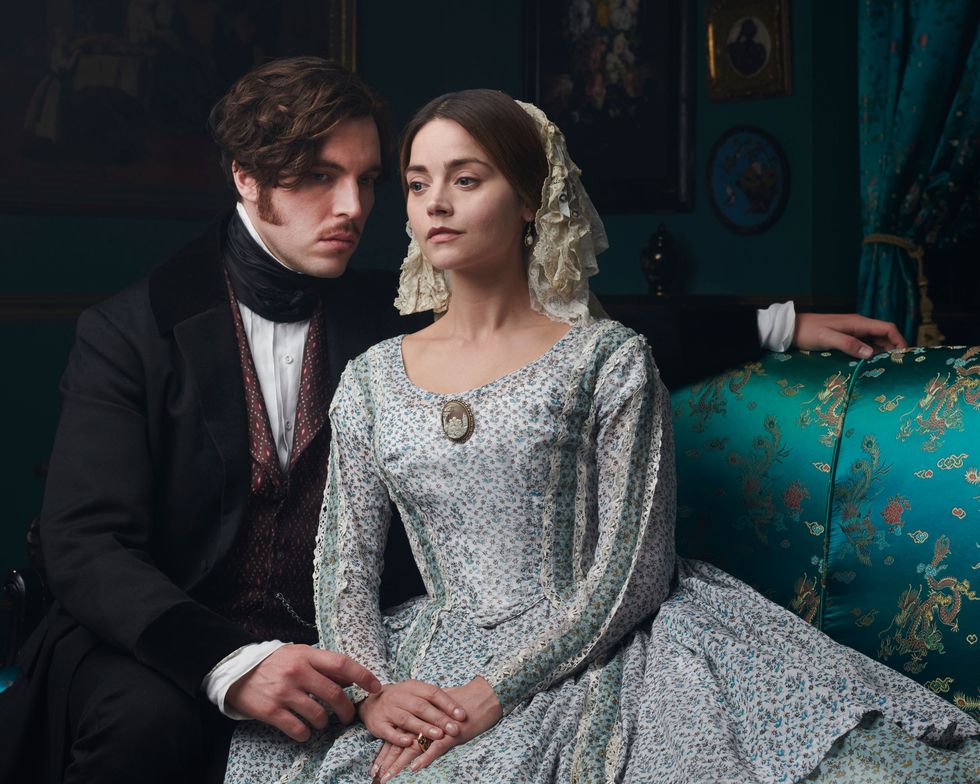
We started to see the a bit of tension between Victoria and Albert last season. Tell me about their relationship in season three.
We started to see the a bit of tension between Victoria and Albert last season. Tell me about their relationship in season three.
Their marriage goes through a huge strain this series. I think they have very different approaches—their minds are incredibly different. You know Albert is methodical. I think he sees the monarchy more scientifically; whereas, Victoria is about the people and understanding her relationship with the public.
So ultimately the question is: how do they manage their relationships and their jobs in regards to the monarchy? But this season ends with the Great Exhibition, which is Albert’s crowning moment. Victoria wrote a line in her diary, which we stole for the show. She said to Albert, “It was a day to live forever.” I just thought that was really beautiful.
His vision—he’s unbelievably ambitious. Daisy would call him the Steve Jobs of their time. He was kind of a relentless worker and a genius really. And I think his expectations and his standards are very high. And it’s interesting because had Albert not come along, history would be very different, but I think Victoria would have been a very different person. Perhaps, a different Queen as well. They’re yin and yang, but it falls out of balance a lot more this season because they just see things quite differently.
Viewers who know even a little bit about British history know that their relationship ends sadly. Is Albert’s death something you think about at all while filming?
Yeah, I think everyone knows it’s coming, and it’s really interesting because Tom [Hughes, who plays Prince Albert on the show] and I look a bit older in this series, and we’re so many children in. You kind of have that creeping feeling, but we still have an amazing part of the story to tell.
Victoria airs Sunday nights on Masterpiece PBS at 9 p.m. eastern.
